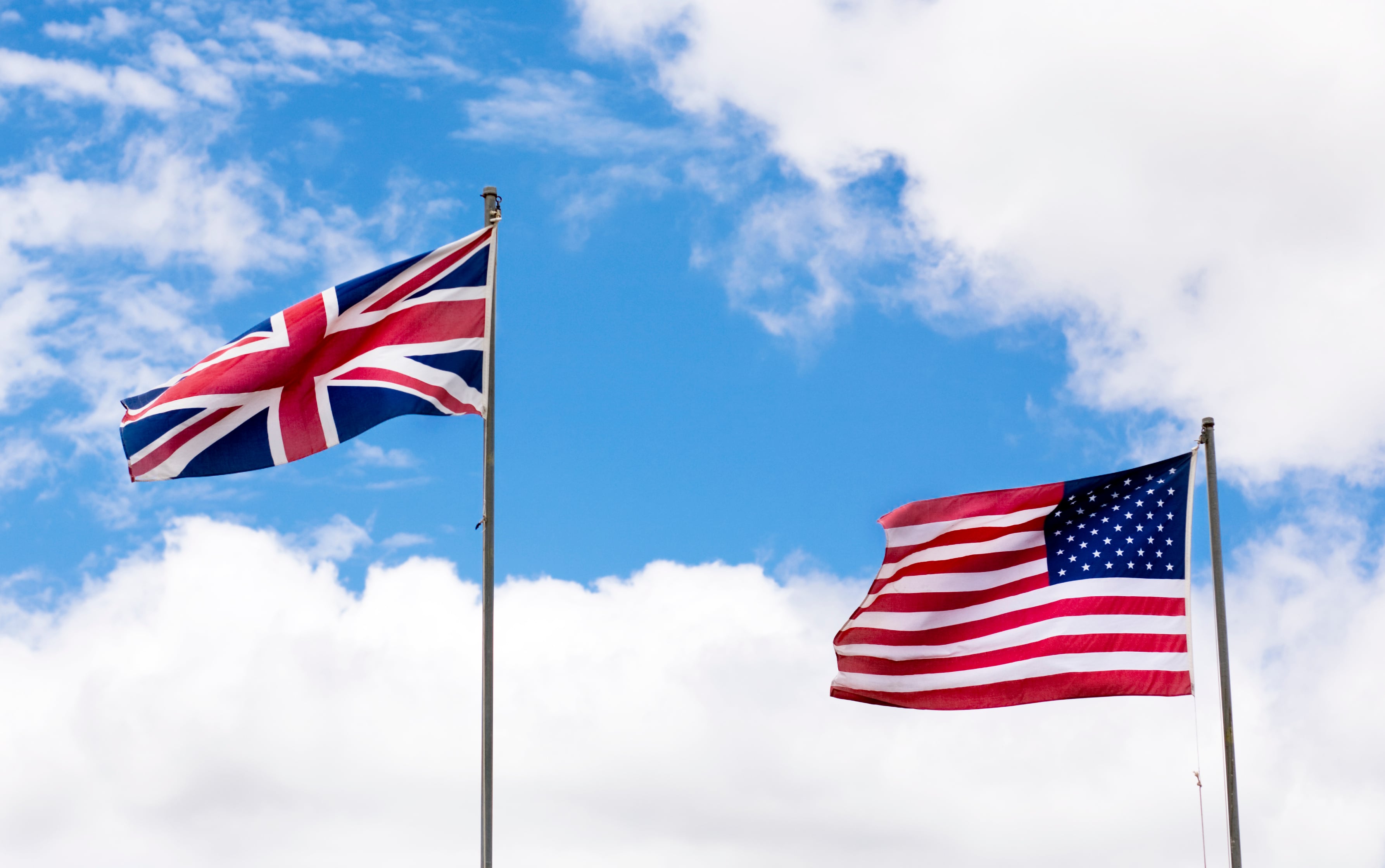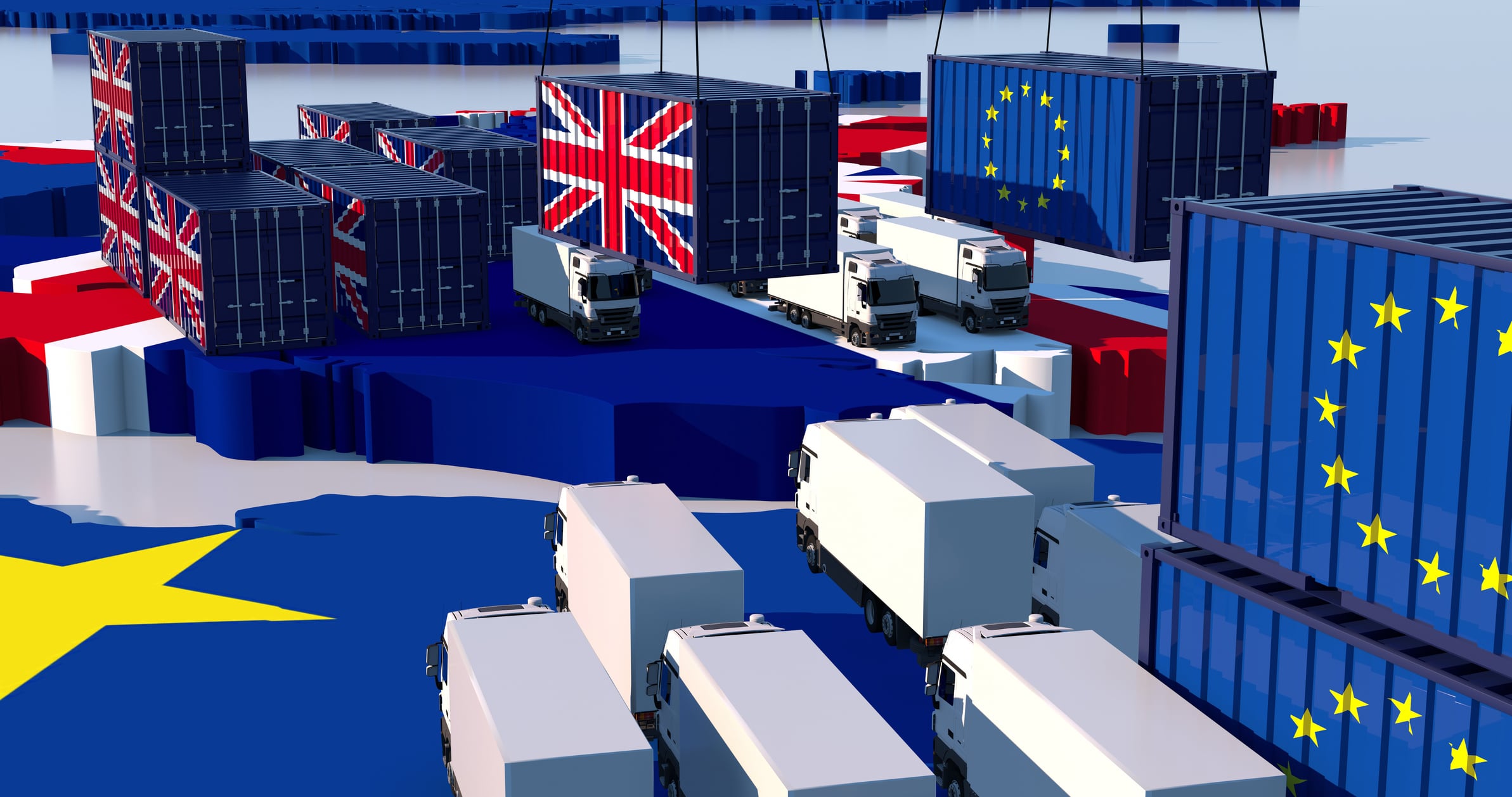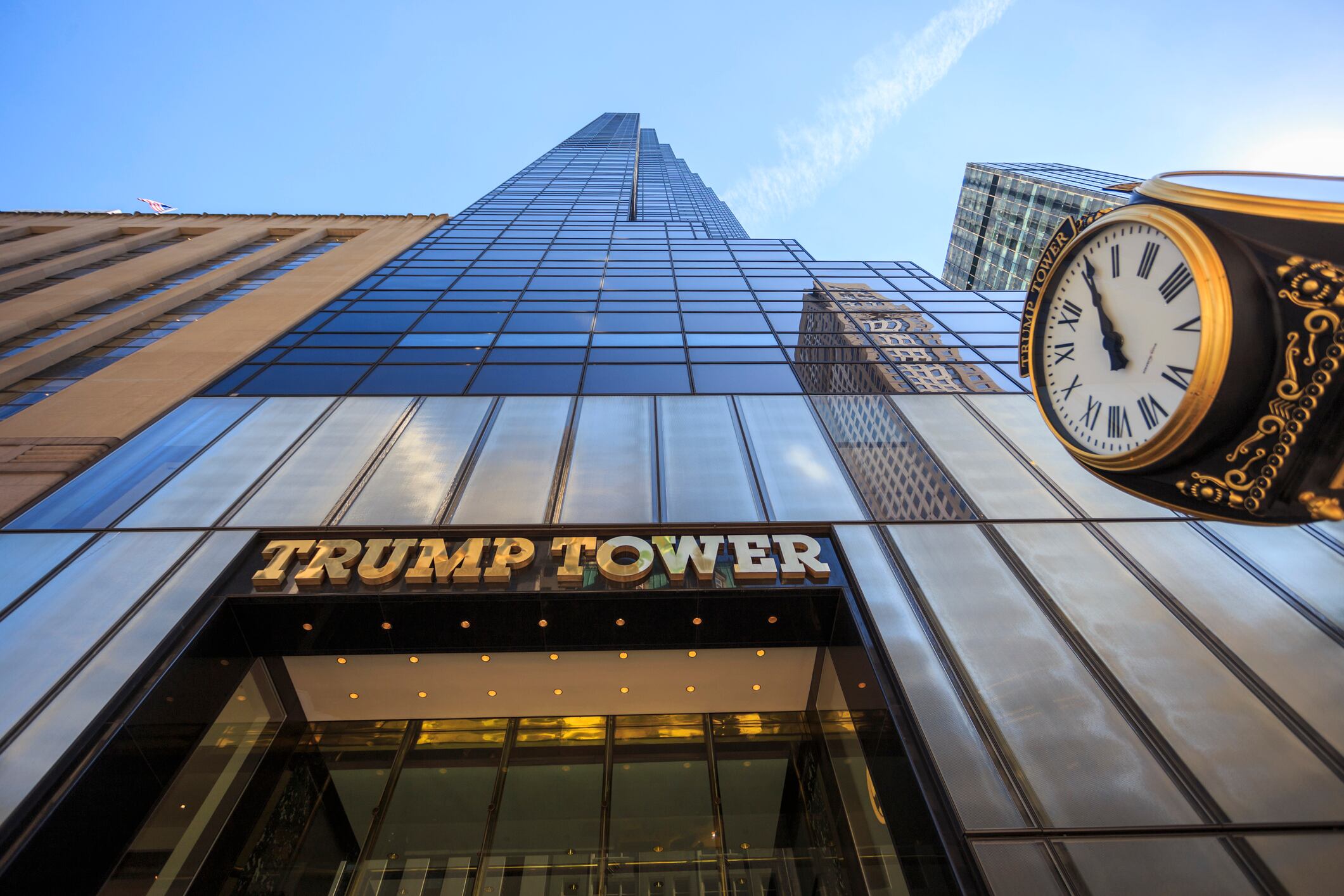Trump is “more serious” this time around, noted Ian Wright, founding partner at Acuti Associates and chair of the now disbanded UK Food and Drink Export Council.
Albeit radical, the former FDF boss (who shared these insights during Lockton’s recent webinar examining ‘The Trump Effect’) said the US president’s programme is “more thought through”, with “better policies” and “people who know how to make them work”.
The general consensus had been that tariffs would centre on levelling out trade surpluses between countries, but there have been more recent signals – which Food Manufacture indicated in December 2024 – that he may use these more widely and more effectively as bargaining chips.
Trump on the economy: ‘I don’t care’
Although Trump failed to end the Russian war on his first day as promised, he has since taken sharp action and threatened Russia with taxes and sanctions. This is likely to be the way he approaches everything, with nations either submitting to his way or the highway (in this case the highway is tariffs).
Indeed, just last month Trump highlighted this stubborn mentality, when he dismissed an interviewer who tried to get him to talk about the economy with a simple: ‘I don’t care’.
Of course, many in the UK – including the Government – are concerned a tariff war could lead to higher inflation, unemployment and stunted economic growth.
“There’s going to be less growth and higher inflation,” Jane Foley, head of FX strategy at Rabobank told Reuters.
Last week, British sterling took a dip, last down 0.14% at $1.2311. It has since climbed back up and is now around 1.1% higher. This follows Trump’s inauguration on Monday (20 January 2025) where the US president opted to focus on policy over tariffs, which will have come as a relief to investors.
Saying this, whilst the US is our largest trading partner, it only accounts for 10% of UK goods imports, so there are others who believe the hit on prices may not be catastrophic as we might think.
James Walton, chief economist for IGD said: “President Trump advocates for tariffs to protect US industry. If he implements new tariffs in his second term, UK food and drink businesses may be impacted. However, the US is not a primary partner for UK trade. While the short-term impact may be challenging for some, the longer-term effects will depend on how the global trade environment evolves and how businesses respond to changing geopolitical and economic conditions.”
As Adam Butlin, a research assistant at LSE’s Centre for Economic Performance points out in a recent LSE blog: History shows us that UK is not likely to experience any permanent inflationary pressure, with the first Trump tariff war only driving a ‘one-off rise in input costs’. The political uncertainty, however, will likely reduce investment, as businesses remain cautious.
“Consolidation is always a response to uncertainty,” Wright added, as he predicted major mergers and acquisitions akin to the 2000s – think Pillsbury’s and General Mills.
We may also see other countries retaliating with their own tariffs as we did during Trump’s previous term. This will have a domino effect on other nations, including the UK, and could encourage further trade barriers in the future.
If the UK is to explore the option of responding to tariffs with tariffs, Butlin advises strategic corporation with the EU and other trade partners will be the most effective route. Yet, he adds that going forward it will be prudent for the UK to avoid aligning with one single bloc as the global scene becomes more fragmented.
UK not a target
While the business and trade secretary, Jonathan Reynolds, has warned that the UK is particularly vulnerable to US tariffs, he told Sky News last month that the nation has a “good argument to make” with there being a chance to even improve the relationship between the US and UK.
Chancellor Rachel Reeves also doesn’t believe the UK is a target for tariffs because it has a trade deficit with the US.
Speaking to Sky News in Davos, she said: “Trade between the UK and the US is worth £300bn a year, a million Brits work for American firms, a million Americans work for British firms, so our economies are closely intertwined, and I look forward to enhancing and strengthening that relationship."
Wright agreed, saying the UK is at least likely to avoid the first round of tariffs.
Despite these cautiously optimistic reassurances, businesses in the UK will still be feeling uncertain, but Wright said the food and drink sector should be seeking out the silver linings – whether these are opportunities in the US or other markets.
It may be that we see more businesses getting their shovels out and establishing a stake in the US with a local site, which Wright indicates is a very typical F&B business approach for many other markets, albeit not usually the US.
A US-UK trade deal
Of course, there are also whispers of a US-UK trade deal which is likely to include food. If this does happen it would represent a watershed moment for the UK, as politicians decide what they allow in.
The Government has previously said it will not compromise on UK food safety but we’re not unfamiliar to broken promises and U-turns here.
Wright believes the UK consumers are savvy and if something is clearly labelled it should be up to the individual to make their own decision, but added that he is sympathetic to the concerns of farmers who are told to obey stringent rules. If products are allowed into the UK market that undercut these standards, the rule book would need to be rewritten.
Speaking with NFU President Tom Bradshaw on the Trump presidency and its impact, he said: “We are closely monitoring the political changes in the US and the developments we can expect from a trade perspective under a second Trump presidency.
“British farmers are proud to supply high-quality agri-food products to US consumers, from dairy and pork to organic certified goods. There is considerable potential to grow our exports of premium products, particularly those with strong claims on provenance and welfare standards.
“Restarting trade talks simply to avoid President-elect Trump’s potential tariffs does not strike me as the right foundation for a balanced trade agreement. If negotiations do proceed, it is vital that any agreement upholds the high standards we set in the UK, ensuring that products which would be illegal to produce here do not gain access to our market.”
RFK and diet-related health
Alongside tariff wars, inflation and food standards, we may also see the US influencing the UK’s health agenda. Robert F. Kennedy Jr has been tasked with revising the US national dietary guidelines and ultra processed foods (UPFs) are firmly on his radar.
“We need to stop feeding our children poison and start feeding them real, wholesome food again,” he wrote on X back in November.
Both RFK and Trump have also previously been vocal about the ‘dangers of alcohol’, although it’s not yet clear whether the recommendation lay fourth by the outgoing Biden administration to place warning labels on alcoholic beverages will be followed through.
Reflecting on RFK’s health influence in the UK, Wright predicts that if certain moves are made, the likes of Wes Streeting may seize the opportunity to impose new diet and health regulations here.
Overall, the implications on the UK food and drink sector will depend very much on America’s own economy, specifically the buoyancy of the US economy.
It will depend on the “American consumer continuing and in fact increasing their propensity to shop”, according to Wright.
“If that doesn’t happen as a consequence of the Trump economic impact, then all bets are off.”





